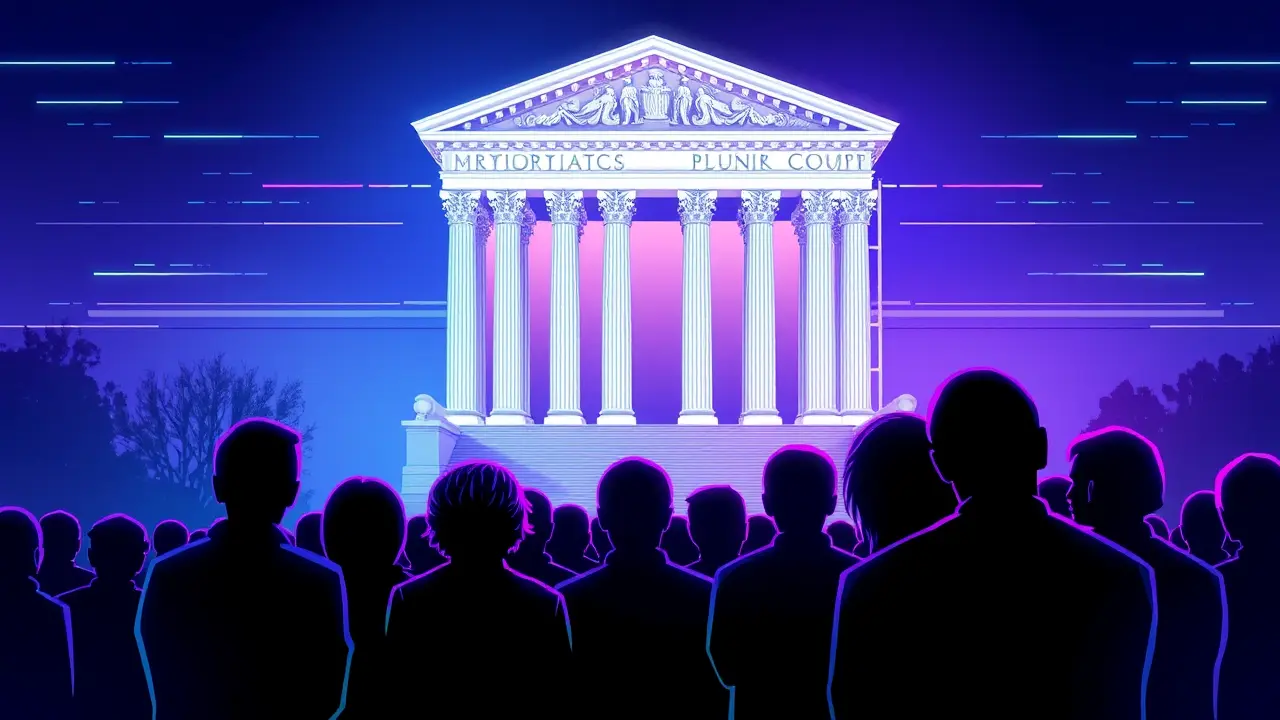
Politicscourts & investigationsSupreme Court Rulings
US Supreme Court Upholds Nationwide Same-Sex Marriage Ruling
AN
Anna Wright
4 hours ago7 min read4 comments
In a decision that resonates with the quiet force of institutional precedent, the U. S.Supreme Court has declined to revisit the bedrock of its 2015 Obergefell v. Hodges ruling, effectively turning away Kim Davis, the former Kentucky county clerk whose refusal to issue marriage licenses became a symbol of a deeply personal and political conflict.This isn't merely a procedural footnote; it's a profound statement about the durability of social progress in an era defined by its fragility. The court's conservative majority, which just three and a half years ago demonstrated its willingness to dismantle a long-standing constitutional right in Dobbs v.Jackson, has, for now, chosen to steer clear of applying that same disruptive logic to marriage equality. The shadow of that abortion rights reversal looms large here, creating a palpable tension for LGBTQ+ advocates and conservative activists alike.Many had braced for a parallel assault, viewing Davis's appeal as a potential legal wedge to splinter the national consensus on same-sex marriage. Her argument, rooted in a claim of religious liberty that would allow public officials to deny services, struck at the very heart of the Obergefell decision, which explicitly held that the right to marry is a fundamental liberty guaranteed to all.To overturn it would have been to unravel a social fabric that has been rewoven in the years since, with hundreds of thousands of marriages and a generational shift in public opinion solidifying its place in American life. The court's denial, while not a formal reaffirmation, sends a powerful signal of stability.It suggests that even a transformed bench recognizes the chaos and human cost of revoking such a widely exercised right, a pragmatic acknowledgment that some precedents, once woven into the daily lives of millions, become exceptionally difficult to unpick. Yet, the human story within this legal drama cannot be overlooked.The gay couple who sued Davis were not simply litigants; they were individuals seeking dignity and equal treatment under the law, their personal milestone transformed into a national battleground. This case exemplifies the ongoing clash between anti-discrimination principles and claims of religious conscience, a conflict that continues to play out in state legislatures and lower courts across the country.While the Supreme Court has paused this particular front, the broader war is far from over. The decision leaves room for future, more narrowly tailored challenges, ensuring that the conversation around the boundaries of religious exemption and governmental authority will persist.For now, however, the nation exhales. The ruling upholds a vision of America where love and commitment are not subject to a geographic or ideological lottery, but are protected from coast to coast.It is a testament to the activists, the families, and the countless individuals who lived their truths openly, shifting the cultural and legal landscape through sheer persistence. The court, in its silence, has spoken volumes about the limits of its current revolutionary impulse, leaving the foundation of marriage equality standing, for another day.
#featured
#US Supreme Court
#same-sex marriage
#Kim Davis
#LGBTQ+ rights
#Supreme Court ruling
#judicial decision
Stay Informed. Act Smarter.
Get weekly highlights, major headlines, and expert insights — then put your knowledge to work in our live prediction markets.
© 2025 Outpoll Service LTD. All rights reserved.